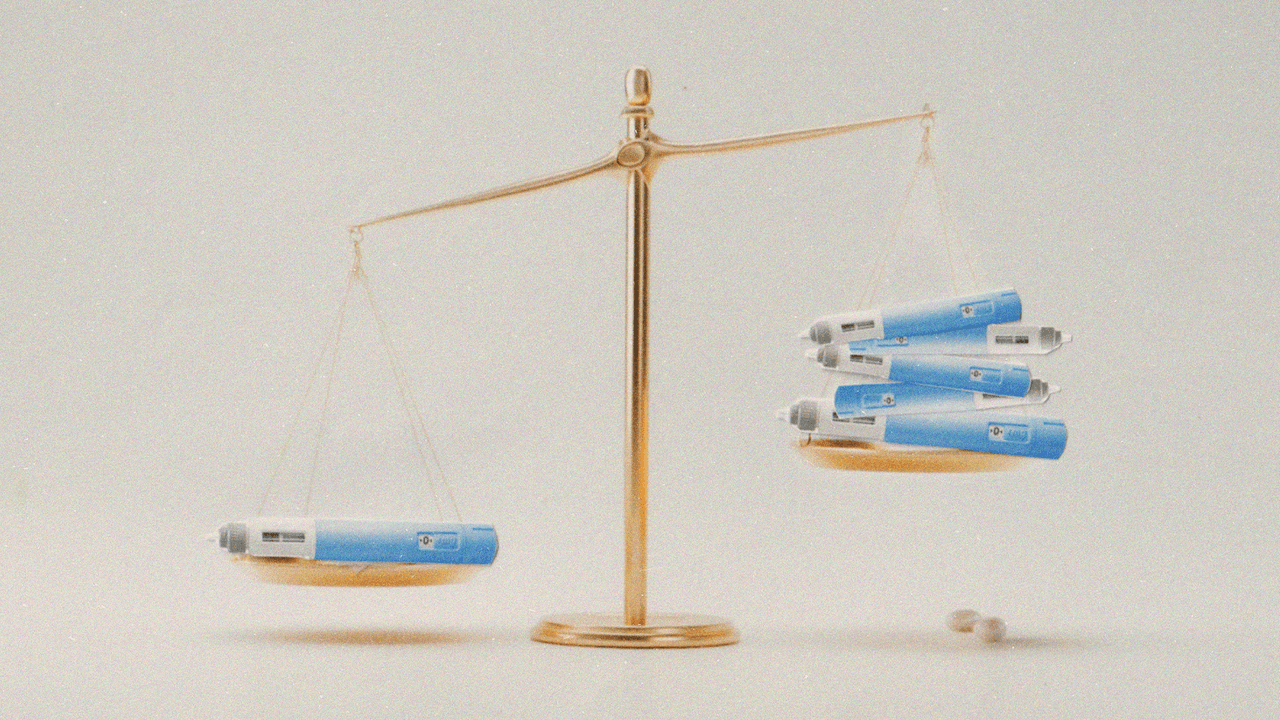What used to be a whisper—“I’m on Ozempic”—has recently become a shout. Celebrities like Serena Williams, Oprah, and Kelly Clarkson are on the jab, aka an injectionable medication like Ozempic, Zepbound, or Mounjaro, which is a synthetic version of the GLP-1 hormone our body produces, and the results typically include weight loss.
“GLP-1 is short for glucagon-like peptide 1, a hormone that we produce in our gut after we eat,” says Dr. Rocio Salas-Whalen, board-certified physician who specializes in obesity medicine and endocrinology. Ninety percent of Dr. Salas-Whalen’s patients are currently on a form of the medication, and it inspired her to write Weightless, coming out in December of this year. “The main function of this hormone is to regulate glucose, but it also helps us feel full after we eat, reduces cravings, and slows down gastric emptying. We have receptors for this hormone all throughout our bodies. GLP-1 medications, such as Ozempic and Zepbound, are long-acting versions of our body’s GLP-1 hormone and have the same effects.”
Last year, one in eight Americans reported having tried one of the drugs, which is typically prescribed to those with diabetes or obesity, because of the weight-loss side effect. Along with the weight loss, though, have come hair loss, facial sagging (known as “Ozempic face”), and potentially shady knock-offs. The latest trend tied to the drug? Microdosing. Watch What Happens Live host Andy Cohen recently confessed that he’s been doing it on his show Radio Andy.
“Given that for 20 years I have been asking people about their body regimens and that I’ve been pretty vocal about every time I go on a diet, I think it would be completely hypocritical not to share,” Cohen says. “This summer, [I lost] a good chunk of weight by micro-dosing a GLP-1.” The father of two said he was unhappy with his weight, but other health concerns like “plaque in my arteries and high blood pressure” motivated his decision to go on the drug.
“Microdosing a GLP-1 refers to taking a dose that is smaller than the FDA-approved therapeutic dose,” says Dr. Salas-Whalen. Dave Asprey—founder of Bulletproof Coffee, inventor of the term “biohacking,” and who I’d sort of describe as a male version of Gwyneth Paltrow—agrees that microdosing is a fad that he hopes passes. Asprey began his weight loss journey in 1995, weighing in at 300 pounds. It wasn’t exactly done what we would call the “old-fashioned way” (aka just diet and exercise) because his tactics involved then-experimental techniques like MCT oil, but he didn’t have GLP-1s as an option at the time.

